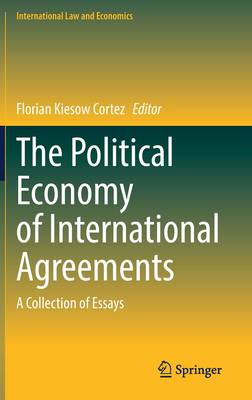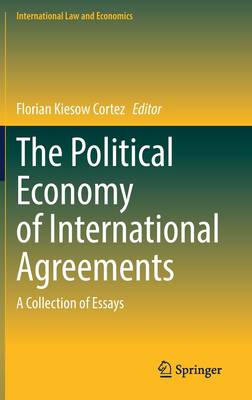
- Afhalen na 1 uur in een winkel met voorraad
- Gratis thuislevering in België vanaf € 30
- Ruim aanbod met 7 miljoen producten
- Afhalen na 1 uur in een winkel met voorraad
- Gratis thuislevering in België vanaf € 30
- Ruim aanbod met 7 miljoen producten
The Political Economy of International Agreements
A Collection of Essays
Omschrijving
This volume analyzes international agreements from a political economy perspective. In four essays, it raises the question of whether domestic institutions help explain if countries join international agreements, and in case they do, what type of international organization they join.
The book examines how specific democratic design elements channel and mediate domestic demands directed at politicians, and how under certain circumstances entering international agreements helps politicians navigate these demands to their benefit. The volume also distinguishes between different types of international instruments with a varying expected constraining effect upon member states, and empirically tests if this matters for incentives to join.
The volume addresses scholars, students, and practitioners interested in a better understanding of how the shape of domestic institutions affects politicians' incentives to enter into binding international agreements.
Specificaties
Betrokkenen
- Uitgeverij:
Inhoud
- Aantal bladzijden:
- 122
- Taal:
- Engels
- Reeks:
Eigenschappen
- Productcode (EAN):
- 9783030851934
- Verschijningsdatum:
- 27/09/2021
- Uitvoering:
- Hardcover
- Formaat:
- Genaaid
- Afmetingen:
- 156 mm x 234 mm
- Gewicht:
- 362 g

Alleen bij Standaard Boekhandel
Beoordelingen
We publiceren alleen reviews die voldoen aan de voorwaarden voor reviews. Bekijk onze voorwaarden voor reviews.










